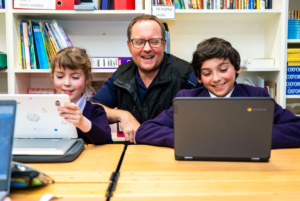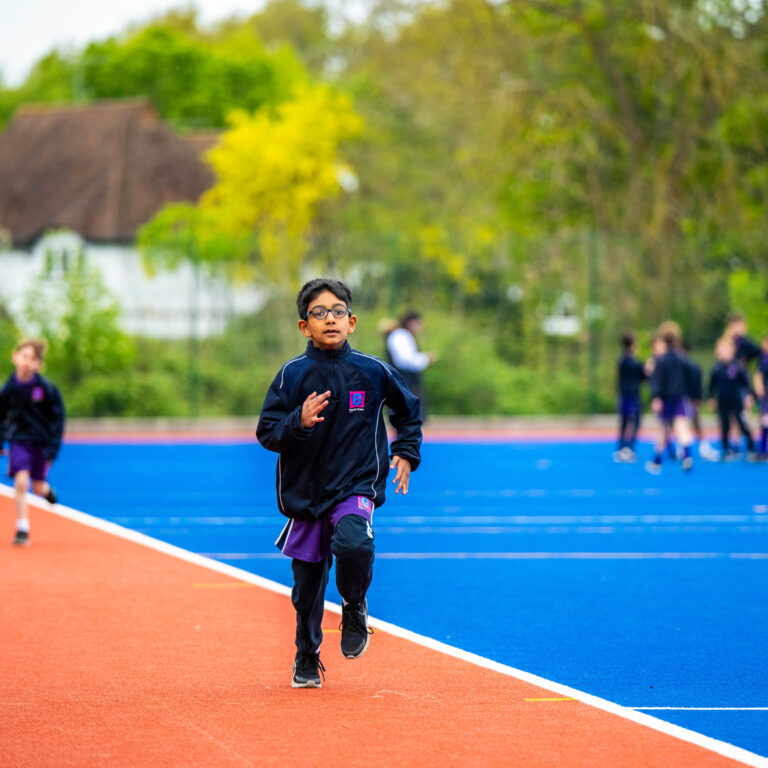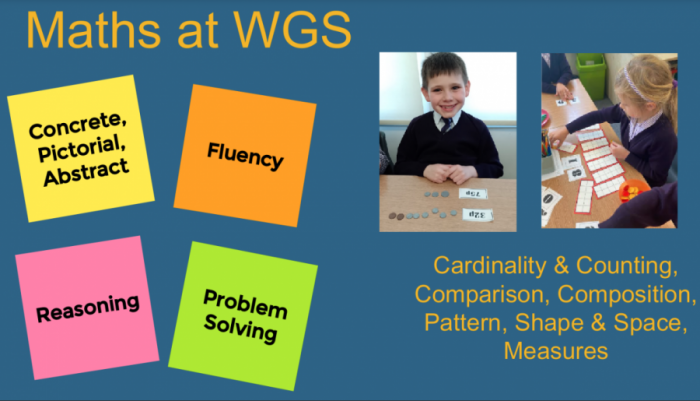
From Nursery to Year 6, this approach brings huge success, our children consistently achieving around 30% greater than their age group and ensuring through preparation for 11+ and beyond.
A confident start
Early maths skills are learned through play and continuous daily exposure to maths in 6 key areas:
- Cardinality and counting: understanding the value of a number and its “howmanyness”.
- Comparison: understanding that the values of numbers can be more or less.
- Composition: understanding that one number can be made up from combining others.
- Pattern: looking for similarities and differences and relationships.
- Shape and space: understanding what happens when shapes move or combine.
- Measures: comparing aspects such as length, weight and volume.
These early skills continue to be used throughout Weston Green School, but are studied in a more formal way as the child progresses through the school.
Becoming a ‘master’ at maths is achieved through a consistent 3 step approach:
Concrete, pictorial and abstract.
The children get to make the numbers (Concrete), draw them (Pictoral) and write them down (Abstract), so they have an understanding of the fact that a number can be made in different ways and is not just an abstract symbol (linked directly to the earlier skills of cardinality and counting and composition).
All lessons also incorporate the following elements:
Fluency, Reasoning and Problem Solving.
Fluency: Becoming Fluent
Fluency in the fundamentals of mathematics through varied and frequent practice with increasingly complex problems over time, so that pupils develop conceptual understanding and the ability to recall and apply knowledge rapidly and accurately.
Children are given opportunities to develop this daily. We further support this with our rapid fire “Fluent in 5” programme.
Reasoning: The ability to reason
Children can reason mathematically by following a line of enquiry.
Conjecturing relationships and generalisations and developing an argument, so that a child can give justification or proof using mathematical language.
Problem solving: The ability to solve mathematical problems
By applying their mathematics to a variety of routine and non-routine problems with increasing sophistication, including breaking down problems into a series of simpler steps and persevering in seeking solutions.
The successful impact of this approach
Children across the school achieve around 30% more than their age group peers nationally.
We have found that children have a deeper understanding of mathematical concepts and are therefore more confident to problem solve independently.
Children demonstrate a strong sense of mathematical fluency and internal assessment and data analysis details significant improvements in both progress and attainment for all children.



